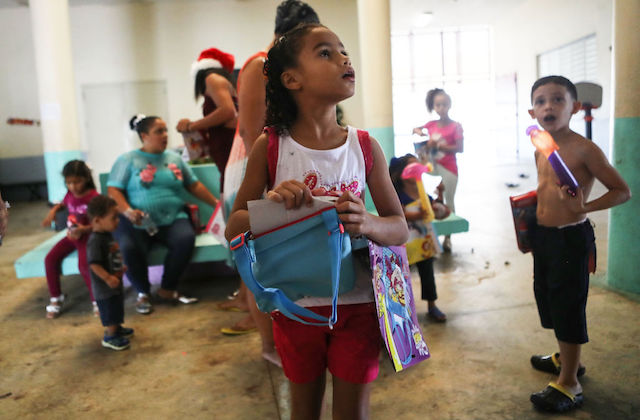As Puerto Rico continues to recover from the destruction of 2017’s Hurricane Maria, a new study shows the ongoing mental health impact of the storm on the island’s children.
The study, published on Friday (April 26) in the journal Jama Network Open, was conducted by the Puerto Rico Department of Education and Medical University of South Carolina. Five months after the hurricane, researchers surveyed 96,108 public school students in grades three through 12 who live throughout Puerto Rico.
Reports PBS:
rnt
Nearly 46 percent said their home was damaged [by Maria]. More than 32 percent experienced shortages of food and water. And roughly 58 percent reported they had a friend or family member leave the island. The effects did not vary based on where the students lived or their families’ income.
In addition, 30 percent reported that they perceived their lives or the lives of people they loved to be at risk, which, according to The Guardian, is a strong predictor of post-traumatic stress disorder (PTSD). About 6,900 students—or 7.2 percent—showed “clinically significant” symptoms of PTSD.
On September 20, 2017, Hurricane Maria hit Puerto Rico and caused a total blackout and a loss of water to half the homes. Nearly 3,000 people died as a result of the storm.
Beyond the casualties, the storm also exacerbated an exodus of residents from the island to the mainland United States. About 4 percent of the population—130,000 people—left after Maria, according to the United States Census Bureau.
“The magnitude was so large that all children were exposed,” Joy Lynn Suárez, a psychology professor at Carlos Albizu University in San Juan and a co-author of the report, told The Guardian.
The study is groundbreaking in a number of ways. It is the largest ever focused on Latinx youth who have been impacted by a natural disaster. It is also one of the most exhaustive surveys of American children—of any race—who have lived through one. Study authors intend for it to be used to pinpoint which regions have the highest need for mental health programs, reports PBS.
“This study shows significant evidence of the need for additional funding to hire and train mental health professionals who can provide evidence-based therapies for children in need,” Suárez told The Guardian. “It also means that we really need to pay attention to preparedness for future disasters and making sure all this potential disaster related exposure—that agencies have a plan of how to be prepared and be able to provide support if this ever happens again.”
Read the entire study here.
